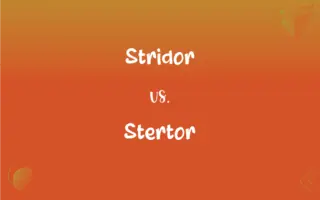MLA vs. MP: What's the Difference?
Edited by Aimie Carlson || By Harlon Moss || Published on February 11, 2024
MLA refers to "Modern Language Association," a style for writing and formatting academic papers. MP stands for "Member of Parliament," a representative elected to a parliamentary body.

Key Differences
MLA, the abbreviation for Modern Language Association, is primarily associated with a specific format for citing sources in academic writing. MP, or Member of Parliament, refers to an individual elected to represent a constituency in a parliamentary system of government.
In academic and research settings, MLA format is widely used for structuring essays and research papers, ensuring a standardized method of citation and formatting. Conversely, an MP holds a political role, participating in national legislative processes.
The MLA style guide dictates specific rules for page layout, in-text citations, and the works cited page in a document. An MP, on the other hand, engages in activities like debating legislation, serving on committees, and representing public interests.
Students and academics commonly use MLA format to maintain uniformity and credibility in scholarly writing. MPs, in their capacity, work on policy-making, constituent advocacy, and government oversight.
The importance of MLA lies in its role in academic integrity and intellectual honesty, while an MP's significance is rooted in political representation and legislative contribution.
ADVERTISEMENT
Comparison Chart
Full Form
Modern Language Association
Member of Parliament
Primary Context
Academic writing and formatting
Political representation
Main Purpose
Standardizing citations in scholarly works
Legislating and representing constituents
Area of Use
Education, research
Government, politics
Key Responsibilities
Ensuring academic integrity in writing
Participating in legislative processes
ADVERTISEMENT
MLA and MP Definitions
MLA
A standardized system for citing sources in academic papers.
She used MLA style to cite her references in the essay.
MP
Member of Parliament, an elected representative in a parliamentary system.
The MP addressed the concerns of her constituency in the parliament.
MLA
An academic standard for presenting written material in humanities.
His thesis followed MLA format, enhancing its readability and academic accuracy.
MP
A legislator in the national or regional parliament.
As an MP, he introduced several bills focused on environmental protection.
MLA
MLA style, known for parenthetical citation and Works Cited pages.
Using MLA, she efficiently cited various authors in her literature review.
MP
A political role, participating in law-making and governance.
The MP's speech on healthcare reform was highly influential.
MLA
MLA refers to guidelines for formatting manuscripts in humanities.
The professor asked all students to strictly adhere to MLA format for their submissions.
MP
MP, a position in government responsible for representing voters.
The MP held a town hall meeting to discuss upcoming policy changes.
MLA
Modern Language Association, a style guide for scholarly writing.
The research paper was formatted according to the MLA guidelines.
MP
An elected official serving in a country's legislative body.
She campaigned vigorously before being elected as an MP.
MP
A military police officer.
MP
Init of market price– written on menus instead of a price to mean the price charged depends on the price of supplies, which may vary.
Ribeye steak – $20; Pork chop – $15; Lobster – mp
MP
A member of the military police who polices soldiers and guards prisoners
MP
A military corps that enforces discipline and guards prisoners
FAQs
What does MLA stand for in academic writing?
MLA stands for Modern Language Association.
What subjects commonly use MLA format?
Humanities subjects like literature and philosophy commonly use MLA.
Does MLA style require a title page?
Typically, MLA style does not require a separate title page.
What are MPs' main duties?
MPs debate legislation, represent constituents, and serve on committees.
How is MLA format used in research?
MLA format is used for structuring and citing scholarly papers.
How long is an MP's term?
An MP's term length varies by country, often four to five years.
How does MLA citation differ from APA?
MLA uses author-page format for in-text citations, while APA uses author-date.
What is the role of an MP?
An MP (Member of Parliament) serves as a representative in a country's parliament.
Can anyone become an MP?
Eligibility to become an MP varies by country but generally requires citizenship and meeting age and residency requirements.
What's the importance of MPs in democracy?
MPs play a crucial role in representing the people and making laws in a democracy.
What are in-text citations in MLA?
In-text citations in MLA include the author's last name and page number.
Is being an MP a full-time job?
Yes, being an MP is typically a full-time commitment.
What powers do MPs have in government?
MPs vote on legislation, influence policy, and can hold government accountable.
Is MLA used globally?
MLA is widely used, especially in the United States and Canada.
Can MPs propose new laws?
Yes, MPs can propose bills for new laws.
Can MLA style be used for science papers?
MLA is less common in sciences, which often use APA or Chicago styles.
How do MPs interact with their constituents?
MPs meet constituents, attend local events, and hold surgeries to address concerns.
Does MLA format include footnotes?
MLA primarily uses in-text citations but allows footnotes for supplementary information.
What is a Works Cited page in MLA?
It's a page listing all sources cited in a paper, formatted in MLA style.
Do MPs have other jobs?
MPs often have other roles but are primarily focused on parliamentary duties.
About Author
Written by
Harlon MossHarlon is a seasoned quality moderator and accomplished content writer for Difference Wiki. An alumnus of the prestigious University of California, he earned his degree in Computer Science. Leveraging his academic background, Harlon brings a meticulous and informed perspective to his work, ensuring content accuracy and excellence.
Edited by
Aimie CarlsonAimie Carlson, holding a master's degree in English literature, is a fervent English language enthusiast. She lends her writing talents to Difference Wiki, a prominent website that specializes in comparisons, offering readers insightful analyses that both captivate and inform.







































































